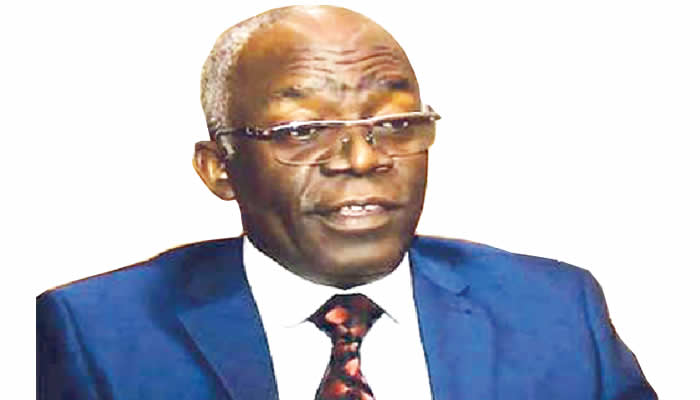Femi Falana, a prominent Nigerian lawyer and human rights activist, has voiced strong opposition to the Nigeria National Petroleum Company Limited’s (NNPCL) recent decisions regarding the pricing of both imported and locally refined fuel. In a statement made on Thursday, he characterized these actions as illegal, null, and void, asserting that they violate the provisions of section 205 of the Petroleum Industry Act (PIA). This section clearly states that the prices of petroleum products should be determined by market forces, emphasizing the need for a free market system rather than government intervention. Falana’s criticism highlights the ongoing struggles in Nigeria’s oil and gas sector, where regulatory compliance and market dynamics are crucial for establishing a functioning and competitive industry.
In further details, Falana pointed out that on September 5, 2024, NNPCL’s Executive Vice President of Downstream Operations, Mr. Adedapo Segun, had publicly acknowledged the implications of section 205 of the PIA. He stated that with the deregulation of the market, petrol prices should now be influenced solely by market forces. Furthermore, Segun emphasized the importance of exchange rates in determining fuel prices, hinting at the complexities involved in setting prices within a fluctuating economic environment. However, despite these assertions of a deregulated market, Falana argued that the NNPCL continues to impose fixed prices, which undermines the principles of market-driven pricing.
Falana reiterated his stance by noting that the NNPCL’s actions contradict the framework established by the Petroleum Industry Act. He claimed that last month, the company fixed the price of fuel produced by the Dangote Refinery and Petrochemical Company Limited, which contradicts their public commitment to allow market forces to dictate pricing. By doing so, Falana accused the NNPCL of consistently violating the regulations that govern its operations, suggesting that there exists a systemic issue within the organization regarding compliance with established laws. This raises significant concerns about transparency and accountability in the management of Nigeria’s petroleum resources.
In a related development, the ongoing controversy between the NNPCL and Dangote Refinery over fuel pricing has caught the attention of the federal government, which has reportedly stated that it will not intervene in the dispute. This non-interventionist approach raises questions about the government’s role in regulating the petroleum sector, especially as many stakeholders and citizens express concern over the frequent fluctuations in fuel prices. The federal government’s reluctance to engage in the issue could be interpreted as a move to bolster the principles of market freedom; however, it also risks letting significant market discrepancies remain unresolved.
The implications of Falana’s criticism and the situation at hand extend beyond mere pricing disputes. They draw attention to the larger systemic challenges within Nigeria’s oil and gas sector, including regulatory oversight, accountability, and the protection of consumer interests. The complexity of fuel pricing, influenced by both local and international factors, suggests that any attempts to stabilize the market must address these deeper issues, rather than simply establishing price controls. As Nigeria continues to grapple with economic difficulties and inflation, the need for a clear and consistent regulatory framework becomes ever more integral to the health of its petroleum industry.
In conclusion, the exchange between Falana and the NNPCL, as well as the broader implications surrounding fuel pricing and regulation in Nigeria, reflects the critical nature of transparency and integrity in the management of national resources. The pursuit of a truly deregulated market must align with the legal framework established by the Petroleum Industry Act, ensuring that market forces are effectively permitted to operate. As stakeholders in Nigeria’s petroleum industry watch these developments closely, the outcome may significantly influence the country’s economic trajectory and the continued quest for reforms that promote accountability and equity within the sector.














